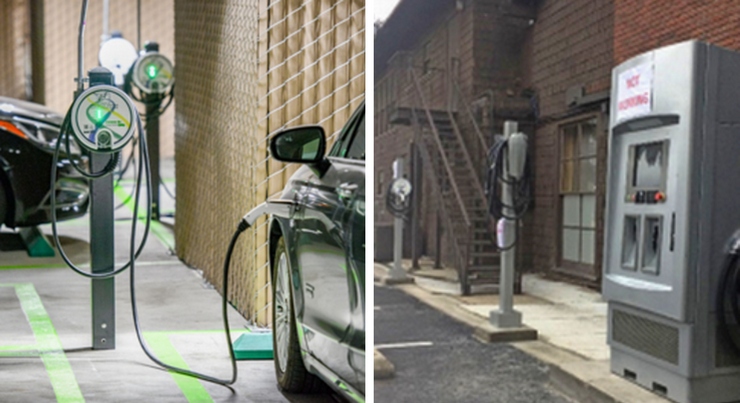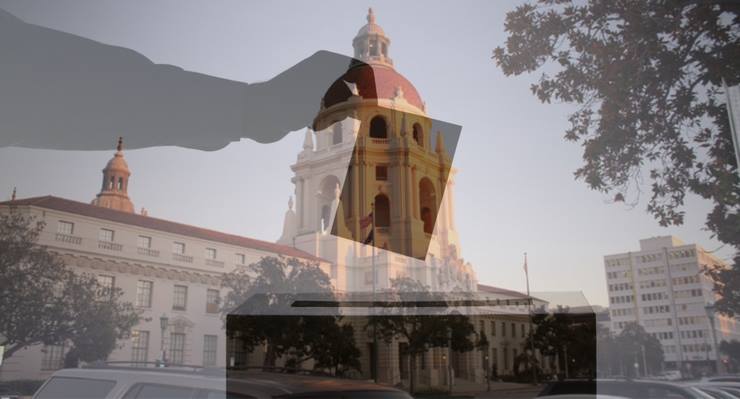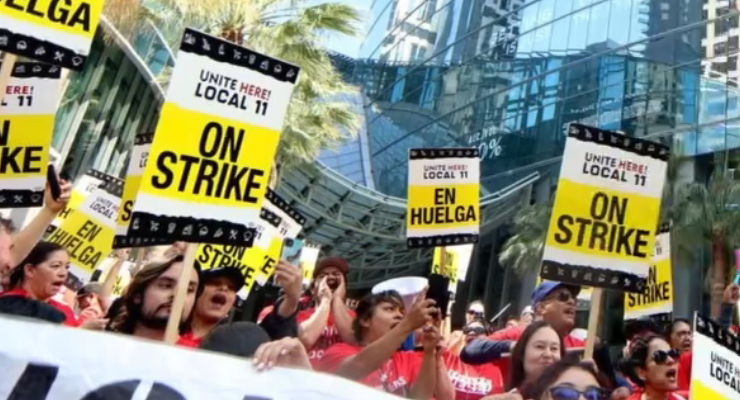Pasadena Water and Power’s updating of the Municipal Services Committee on Tuesday was to reveal a program that is beginning to drive sales of electric vehicles (EV), while laying down expanding infrastructure to handle them and, hopefully, many more.
The presentation prepared by PWP staff featured insights on the City’s EV charging program goals, the latest on procurement, and a look at related projects ongoing or planned for the future.
“Pasadena kicked-off our ‘Power Up’ campaign in 2018, when we introduced new rebates for electric vehicles and EV chargers and we saw a nice upsurge in sales,” said PWP spokeswoman Margie Otto.
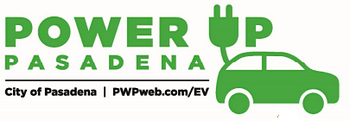 PWP said some 1.2 million plug-in vehicles have been sold nationwide since 2010, and with Pasadena leading other municipalities in the region with just over 1 percent of registered plug-in vehicles for 2018, its looks like a good place to push the technology.
PWP said some 1.2 million plug-in vehicles have been sold nationwide since 2010, and with Pasadena leading other municipalities in the region with just over 1 percent of registered plug-in vehicles for 2018, its looks like a good place to push the technology.
The overarching reason for the program is, simply put, climate benefit.
The City’s climate action plan encourages EV transportation in order to reduce net emissions of greenhouse gases, nitrogen oxide and harmful particulate matter emanating from the exhaust of a typical gas-fired combustion engine.
Mobile sources remain a significant source of pollutant emissions. They account for 80 percent of nitrogen oxide emissions and 35 percent of greenhouse gas emissions.
Statewide, PWP pointed out, the electric sector leads the transportation, industrial, residential, commercial, and agricultural sectors in greenhouse gas reductions since 1990.
The program’s goals are to reduce the use of fossil fuels associated emissions while accelerating the adoption of electric vehicle use.
PWP’s plan is to add 100 commercial charging ports a year to Pasadena’s infrastructure.
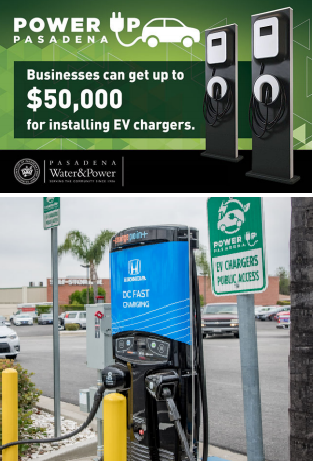 For the utility it signifies potential load growth and revenue at a time when both are shrinking. It would mean off-peak energy sales and a broadening of its customer base to those living beyond Pasadena’s boundaries, but passing through.
For the utility it signifies potential load growth and revenue at a time when both are shrinking. It would mean off-peak energy sales and a broadening of its customer base to those living beyond Pasadena’s boundaries, but passing through.
Otto said the adoption of electric vehicles represents an opportunity for PWP, through outreach and incentives, to encourage recharging during off-peak hours and gain flexibility in the management of its energy load.
The City has 50 EVs in its fleet, including 38 newly leased cars delivered in May and June. PWP said the projected savings from the new additions are some 28,500 gallons of gasoline over three years and a net carbon dioxide reduction of 120,000 pounds.
Among Pasadena’s infrastructure initiatives is the City Yards Charging Project, which is in phase one. It entails installation of 35, Level 2 chargers to the five already in existence, and two Direct Current Fast Chargers (DCFCs) or “Superchargers,” which can do the job in 15 to 20 minutes time.
The Marengo Charging Station will include a mix of “EV-Preferred” and “EV-Only” parking spaces at the Paseo Colorado/Convention Center. It is Tesla’s plan to install 24 Superchargers at the plaza.
The City plans to kick-in up to 20 DCFCs into what PWP calls the “largest fast-charging plaza in the west.” It is projected to be up and running by November. PWP said that could result in a potential $500,000 to $750,000 jolt of positivity to electric revenues in addition to more parking revenue.
The Holly Garage Fleet Charging Station should be completed in August with 25 Level 2 chargers, nine of which will be public, with the remainder reserved for City fleet usage.
Other projects include a Holly Street Station near City Hall with 16 Level 2 chargers. PWP is “contemplating” a station at Shoppers Lane and Tesla is pursuing a Supercharger site at the proposed Home Depot in East Pasadena.
Stations for Robinson Center/Park, Victor Park Community Center, Del Mar Metro Station, the Rose Bowl, Broadway Generation/Parking Lot are also being contemplated.
PWP is using commercial rebates to encourage private sector development of charging stations as well. A business can get a commercial rebate of between $3,000 and $6,000 per charger up to $50,000.
To date, the rebates have resulted in the installation of 82 Level 2 chargers and 2 DCFC chargers. Some $89,000 in rebates have been paid out as a result.
On the “home front,” PWP has paid out over 650 electric vehicle rebates – to those who have purchased an EV – and 110 home EV charger rebates – for those who’ve installed chargers in their homes.
PWP is getting some assistance in the rebate department from the Southern California Incentive Project, which is a State of California initiative that has committed $210,00 for the Marengo Supercharger Plaza. PWP has been “waitlisted” for $110,000 designated for the Del Mar DCFC Upgrade.












